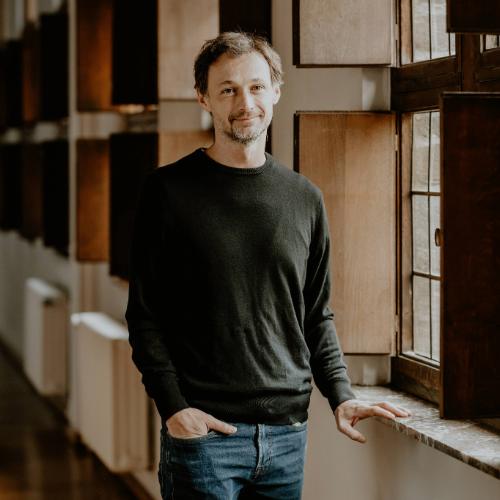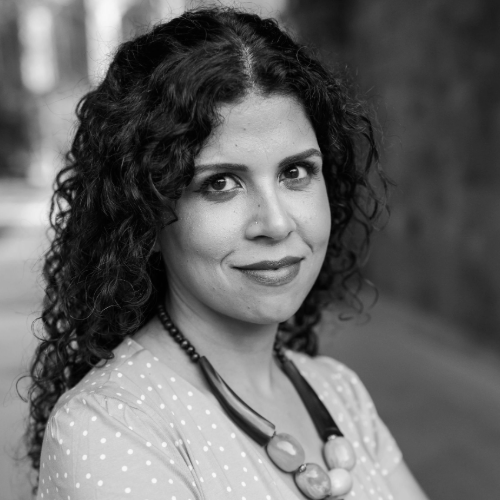Programme
Stay tuned: Sign up for the UCSIA Summer School newsletter and join us on LinkedIn and Facebook!
Competing Values, Shifting Norms
Questioning the Intersection of Religion and Politics through Moral Debates
The 2025 UCSIA summer school offers an inquiry on how the intersection of religion and politics today is predominantly articulated through moral lenses and their effects. Building on the 2024 summer school on theopolitics and the theological narratives of nationalism, populism and conservatism from an institutionalized level, this year’s focus will be on the entanglements between the political and the religious via moral tensions and debates from a bottom-up perspective and their influence on different levels of (theo)political action.
The human capacity to shape one’s life and environment has brought forward an incessant negotiation of values and norms, of definitions of the good life, shaping various philosophical and religious traditions. These traditions continue to influence the cultural, social and political spheres and inform the power dynamics between the state, religious and social institutions, and individual lives. At the same time, we observe the channeling of religious and political frictions in (conservative) moral discourses and value conflicts and the intense moralization of for example, women’s bodies, migrants and refugees, …
In a rapidly changing world caught in overlapping multiple crises, it is crucial to analyse the historical, philosophical and theological inspirations of such moral debates and their role in (shifting) power dynamics. The shifting boundaries and frictions between public and private, secular and religious determine the intrinsic relationship of politics and religion, while simultaneously reshaping the moral vocabularies and their conflictual or emancipatory potential.
As expressions of first principles, moral values have varying and often competing sources. Consequently, the question of authority emerges, who should interpret the sources of morality and define values, norms, their scope and ensuing practices. It has a lasting impact on both the search for meaning and the expression and creation of (new) identities, as they affect the outlook of and interactions between majority and minority communities, and the self-understanding of individuals within different relational scales (family, institutions, state).
By bringing together the different disciplines of the human and social sciences, this summer school will critically reflect on historical and contemporary discourses on moral issues, their philosophical and theological inspirations, and political implications.
Papers may address but are not limited to the following questions:
- How do the entanglements between religion and politics take moral shape in public discourse, social life and ensuing practices?
- How do different sources of morality compete against each other, on a conceptual, discursive and/or practical level?
- How is moral authority negotiated in the religious and political realm, and to what ends?
- How do shifting moral discourses influence projects of self and collective transformation and everyday practices?
- How do moral/religious values provide scope for more just worlds, a politics of care and human aspirations?
Faculty
Vlad Naumescu
Vlad Naumescu is Associate Professor at the Department of Sociology and Social Anthropology of the Central European University. He is an anthropologist of religion with broad interdisciplinary expertise and visual practice. His work spans several fields, including religion and secularism, learning and cultural transmission and visual anthropology.
Research
Naumescu’s research focuses on the transformation of global Orthodoxy from a historical-comparative perspective. He has conducted long-term fieldwork in Eastern Europe and South India, exploring religious change in postsocialist Ukraine (2007), competing moralities in (post)socialist Romania (2016) pedagogies of prayer in South India (2019), Orthodox theopolitics (2020) and religious orthodoxies (2022). He is currently conducting fieldwork on religious disputes in secular courts in South India, looking at the transmutation of religious rites into rights in the indigenous Malankara church.

Dr. Naumescu is also an award-winning documentary filmmaker (Birds’ Way, Bread of Life: The Word/Silence) and has been leading international summer schools and documentary film workshops for many years.
This is Dr. Naumescu’ s third year on the UCSIA Summer School team. He first contributed as a guest expert during the 2023 thematic workshop that shaped the current three-year cycle and continued in 2024 as a lecturer.
His expertise in religious-secular frictions, theopolitics and moral traditions makes him particularly well-suited to this year’s theme: Competing Values, Shifting Norms: Questioning the Intersection of Religion and Politics through Moral Debates. His work sheds light on the entanglement of politics and religion in contemporary societies, offering valuable insights into current discussions on faith, authority, and moral contestation.
Yasmin Moll
Yasmin Moll is an Assistant Professor in the Department of Anthropology at the University of Michigan. A socio-cultural anthropologist, Dr. Moll’s research interests span the intersections of religion, media, and politics as well as questions of race, indigeneity and heritage activism in the Middle East and North Africa.
Her work explores what a methodological attunement to theological contestations reveals about everyday dynamics of ethical belonging and moral boundary-making in highly polarized contexts.
New book
The Revolution Within, her new book published by Stanford University Press, explores the social life of theology in relation to both Islamic television production and the 2011 Tahrir Square uprising.

Other publications
Dr. Moll has published widely on the intersections of religion, media and politics in Muslim societies. This includes on subtitling on Islamic television as a form of critique (Public Culture), on what debates over new forms of Islamic media reveal about shifting theological evaluations of the religious and the secular (Cultural Anthropology), on how the conceptual history of Islamic media provincializes Euro-American decolonizing projects (International Journal of Middle East Studies) and on the changing criteria of ritual aptness in Islamic preaching in a digital media age (Comparative Studies in South Asia, Africa and the Middle East) .
Her most recent journal article asks how the idea of a “Godly ethnography” might unsettle in generative ways the taken-for-granted secular horizon of calls to decolonize anthropology (American Anthropologist).
Latest research
Dr. Moll’s newest research examines interactional ethics and theological debates as an overlooked aspect of intangible heritage for marginalized and racialized groups grappling with competing universalisms, with a focus on Nubians in Egypt.
Filmmaking
Dr. Moll trained in ethnographic filmmaking in NYU’s renowned Culture and Media Program. Her most recent film, Hanina/Homesick, screened at Annecy, Margaret Mead, and the Society for Visual Anthropology Film Festival, where it won honorable mention for best short.
More UCSIA Summer School tutors will be added soon!
Do you want to stay tuned? Sign up for our newsletter or follow us on Facebook, LinkedIn, Bluesky or Instagram.
Assignments
1. Paper presentation
During this 90-minutes session students will have the chance to present their research project and signal the difficulties they are facing in their particular research phase. The time allocated for the presentation of the research project is 25-30 minutes. Students are free to use visual aids or audiovisual equipment during the presentation. After the presentation, the assigned tutor and two respondents from the peer group will provide feedback (5-10 minutes each). The remaining time will be used for discussion.
2. Response
Each student will be a respondent during two presentations. A respondent should try to find the main problems in the research project and give useful feedback on research questions, concepts, methodology, ethics… Next to that, he/she can give the presenter some challenging insights from his/her own field of expertise. The scientific committee matches the presenters and the respondents based on research topic, discipline and research phase. In order to prepare thoroughly for this assignment, the detailed schedule and syllabus will be made available online by mid-July.
Classes
Biographical encounter
Getting to know each other: meet UCSIA, the faculty and your peers.
Plenary lectures
The faculty presents its own current research and introduces or discusses theoretical and methodological frameworks within their disciplinary approach. Their lectures are followed by Q&A. The public lecture is open to the general audience of UCSIA.
Parallel paper sessions
The faculty members will each tutor a group of five students of relating disciplines. In these small groups they will thoroughly discuss the papers of the group members. Each paper is allotted 25-30 minutes for its presentation, the remaining 60 minutes will be used for discussion.
In preparation of each session, students are asked to read the respective papers in advance. The active participation of students is required in order to ensure an enriching and lively discussion.
Individual tutorial
Book an appointment (15 minutes / slot) with a tutor to receive personal feedback on conceptual, methodological or multidisciplinary problems within your own research project.
Interdisciplinary encounter
Students discuss current issues in the study of religion with their peers, the faculty and the members of the scientific committee.
Preliminary schedule
Sunday
7.00 pm UTC+2
Welcome dinner
Monday
Tuesday
Wednesday
Thursday
Friday
9.00 - 10.30 am UTC+2
Parallel paper session 1
Plenary lecture
Plenary lecture
Plenary lecture
10.00 - 10.30 am UTC+2
Welcome by UCSIA
10.30 - 11.00 am UTC+2
Biographical encounter
Coffee break
Coffee break
Coffee break
Coffee break
11.00 - 12.30 am UTC+2
Parallel paper session 2
Parallel paper session 4
Parallel paper session 5
Interdisciplinary encounter
12.30 - 2.00 pm UTC+2
Lunch
Lunch
Lunch
Lunch
Farewell lunch
2.00 - 3.30 pm UTC+2
Plenary lecture
Parallel paper session 3
Individual tutorial
3.30 - 4.00 pm UTC+2
Coffee break
Coffee break
4.00 - 5.30 pm UTC+2
Plenary lecture
Individual tutorial
Free afternoon
6.00 - 7.00 pm UTC+2
Dinner
7.00 - 8.30 pm UTC+2
Dinner
Dinner
Public lecture
Programme overview
Sunday
7.00 pm UTC+2
Monday
9.00 – 10.00 am UTC+2
Welcome by UCSIA
10.30 – 11.00 am UTC+2
Coffee break
11.00 – 12.30 am UTC+2
Biographical encounter
12.30 – 2.00 pm UTC+2
Lunch
2.00 – 3.30 pm UTC+2
Disciplinary encounter
3.30 – 4.00 pm UTC+2
Coffee break
4.00 – 5.30 pm UTC+2
Plenary lecture
5.30 – 7.00 pm UTC+2
Free time
7.00 – 8.30 pm UTC+2
Dinner
Tuesday
9.00 – 10.00 am UTC+2
Plenary lecture
10.30 – 11.00 am UTC+2
Coffee break
11.00 – 12.30 am UTC+2
Parallel paper session 1
12.30 – 2.00 pm UTC+2
Lunch
2.00 – 3.30 pm UTC+2
Parallel paper session 2
3.30 – 4.00 pm UTC+2
Coffee break
4.00 – 5.30 pm UTC+2
Parallel paper session 3
5.30 – 7.00 pm UTC+2
Free time
7.00 – 8.30 pm UTC+2
Dinner
Wednesday
9.00 – 10.00 am UTC+2
Plenary lecture
10.30 am – 11.00 UTC+2
Coffee break
11.00 – 12.30 am UTC+2
Parallel paper session 4
12.30 – 2.00 pm UTC+2
Lunch
2.00 – 3.30 pm UTC+2
Individual tutorial
3.30 – 4.00 pm UTC+2
Coffee break
4.00 – 5.30 pm UTC+2
Social activity | Free afternoon
5.30 – 7.00 pm UTC+2
Free time
7.00 – 8.30 pm UTC+2
Dinner
Thursday
9.00 – 10.00 am UTC+2
Plenary lecture
10.30 – 11.00 am UTC+2
Coffee break
11.00 – 12.30 am UTC+2
Parallel paper session 5
12.30 – 2.00 pm UTC+2
Lunch
2.00 – 3.30 pm UTC+2
Parallel paper session 6
3.30 – 4.00 pm UTC+2
Coffee break
4.00 – 5.30 pm UTC+2
Parallel paper session 7
6.00 – 7.00 pm UTC+2
Dinner
7.00 – 8.30 pm UTC+2
Public lecture
Friday
9.00 – 10.00 am UTC+2
Plenary lecture
10.30 – 11.00 am UTC+2
Coffee break
11.00 – 12.30 am UTC+2
Q&A session
12.30 – 2.00 pm UTC+2
Lunch
2.00 – 3.30 pm UTC+2
Individual tutorial
3.30 – 4.00 pm UTC+2
Coffee break
4.00 – 5.30 pm UTC+2
Parallel paper session 8
5.30 – 7.00 pm UTC+2
Free time
7.00 – 8.30 pm UTC+2
Farewell dinner
Saturday
11.00 – 12.30 am UTC+2
Wrap up
12.30 – 2.00 pm UTC+2
Lunch
